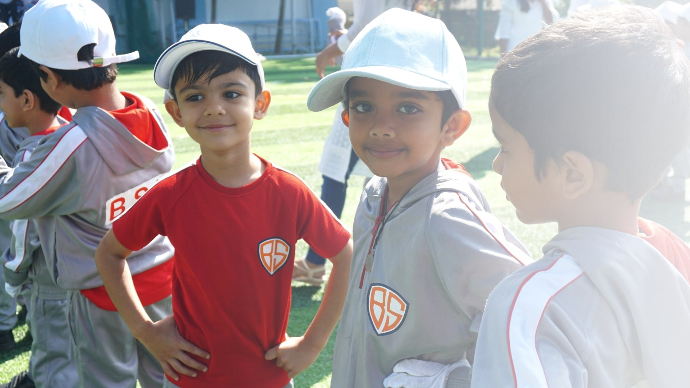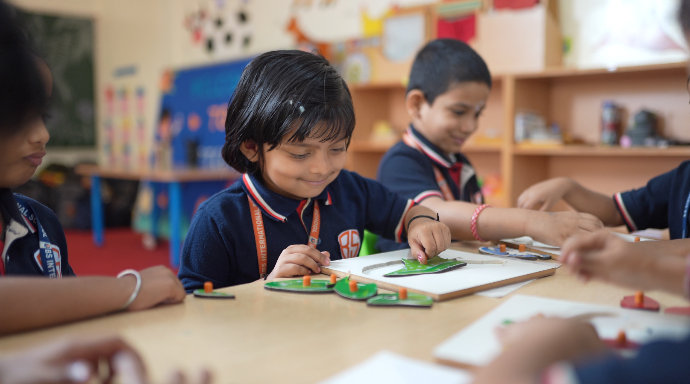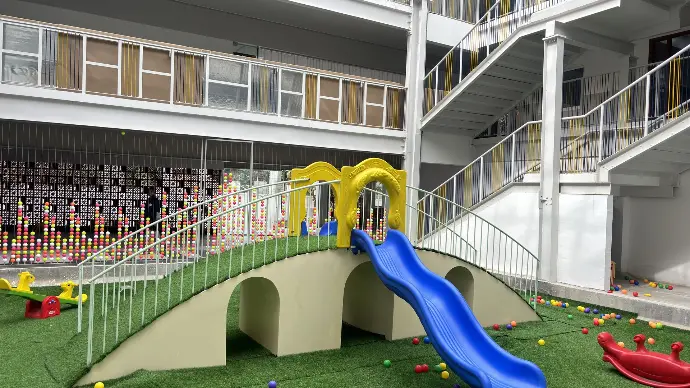Experienced Faculty
Our dedicated faculty at BS International School is committed to fostering a supportive and engaging learning environment that inspires students to excel academically and personally.
Safest Infrastructure
BS International School boasts a state-of-the-art infrastructure, designed with the highest safety standards, to ensure a secure and conducive learning environment for all students.
Transport with GPS & CCTV

Independence
Children learn to make choices and take responsibility for their own learning.
Respect
The Montessori environment fosters respect for oneself, others, and the materials used in learning.
Collaboration
Children develop teamwork skills by working together and learning from one another.
Critical Thinking
The hands-on approach encourages problem-solving and critical thinking skills as children explore and discover.
Frequently asked questions
Here are some common questions about our Montessori Program.
The 5 main environments of the Montessori curriculum are Exercise of Practical Life, Sensorial, Arithmetic, Language, and Cultural. Exercise of Practical Life teaches everyday skills like pouring and dressing to build independence and coordination. Sensorial activities help refine the five senses through hands-on materials. In the Arithmetic environment, the concepts of Math are introduced using concrete. tools to develop a strong understanding of numbers and operations. In the Language environment, learning begins with phonetics and progresses to reading and writing at each child’s pace. Cultural environment covers geography, zoology, botany, history, art, and music, helping children connect with the world around them.
Montessori education is best suited for children starting as early as infancy (around 6 months) and is commonly designed for preschoolers aged 3 to 6 years, continuing through elementary and even adolescent levels. Early childhood is ideal because it’s a crucial time for brain development and learning, allowing children to benefit most from Montessori’s hands-on, self-directed approach. While older children and teens can also thrive in Montessori environments, starting between 2.5 to 4 years old is generally recommended to build strong foundational skills and habits.
Montessori and LKG differ mainly in their teaching approach and structure. Montessori focuses on child-led, hands-on learning in a prepared environment, encouraging independence and allowing children to learn at their own pace without formal tests. LKG, on the other hand, is a more traditional, teacher-directed early education program with structured lessons, group activities, and formal assessments designed to prepare children for primary school. Montessori suits children who thrive on freedom and exploration, while LKG works well for those who benefit from routine and instructed learning.
Preschool and Montessori differ mainly in their teaching approach and environment. Preschool is teacher-led with a structured curriculum focusing on social skills and basic academics through group activities. Montessori is child-centered, encouraging independent, self-paced learning with hands-on materials in a carefully prepared environment. Teachers in Montessori act as mentors/ guides rather than instructors, and assessment is done through observation rather than formal tests. Montessori can start from infancy and adapts to each child’s pace, while preschool usually serves children aged 3 to 5, preparing them for kindergarten.
The Montessori method of teaching is a child-centered educational approach developed by Dr. Maria Montessori, emphasizing independence, hands-on learning, and self-directed learning in a thoughtfully prepared environment. In Montessori classrooms, children choose their tasks based on interest, work at their own pace, and learn through tactile materials designed to build understanding through experience. Teachers act as mentors/guides rather than traditional instructors, observing and supporting each child’s development. With mixed-age groups and a focus on intrinsic motivation rather than grades or rewards, the method nurtures critical thinking, responsibility, and a lifelong love of learning.


